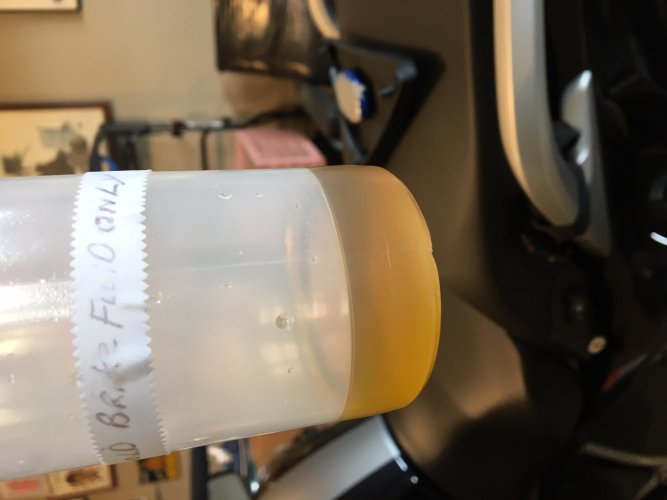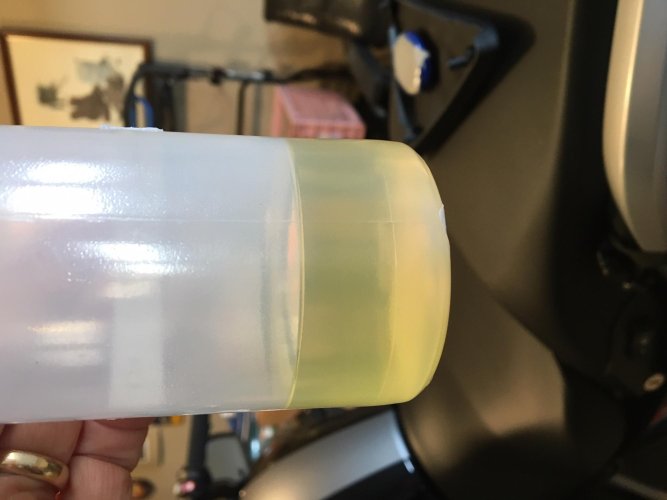Yes. The question was, when does time meter start for service recommendations? Does it start on assembly month or on in service date? Sorry I added more words than needed, didn't mean to throw anyone off point. A bottle of DOT 4 cost only $3.95 here, you're getting robbed.
LOL. https://www.motosport.com/belray-dot-4-brake-fluid-355ml






